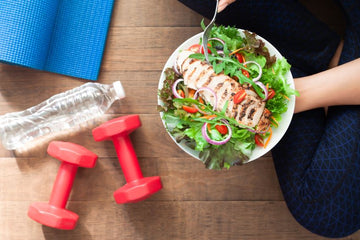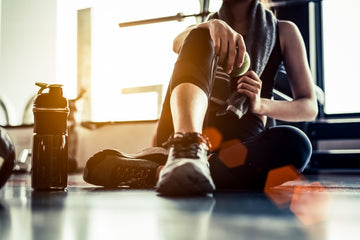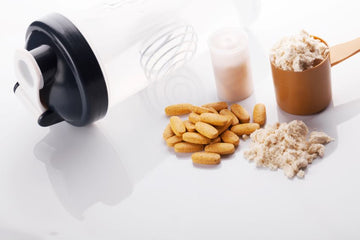The anxiety to eat is the irrepressible desire to take food without having a physiological need for it. It can become a serious mental problem that ends up affecting physical health if it is not controlled in time.
Anxiety episodes are very common nowadays. Many of them are derived from the fast pace of life that we lead and the commercial and emotional stimuli that we constantly receive.
When these processes are related to food, we can talk about emotional hunger . Today we show some steps to follow to overcome these situations, we seek an answer to the question of how I can stop thinking about food.
What is anxiety about eating
The anxiety to eat is a state in which the person eats without being really hungry and objectively. It is characterized by an impulsive and uncontrolled need to satisfy a desire that is not natural and that will not bring any well-being at a metabolic level.
From a mental health point of view, this translates into an emotional conflict that is not adequately resolved . The person eats to satisfy needs that are not physiological or metabolic, but emotional.
An added problem to this situation is that cravings, these episodes of eating that are not controllable, are never healthy food, but rather high-calorie foods, with excess fat and sugar, with an umami flavor ...; In short, foods that are not very satiating and that end up hindering the situation more, since the feeling of guilt that is generated after eating is much more marked.
On the other hand, the big problem is not the food that is ingested, but accessing those causes that make us eat impulsively. If you are able to determine what are those reasons that feed anxiety , it will be easier to answer how to control anxiety and food.
Causes of anxiety about food
There are many causes that determine this lack of control when dealing with food. Most of them have to do with mental problems ranging from a low sense of self-esteem and self-confidence to poor emotional management and setting difficult challenges. In the physical section, bad nutritional habits and insufficient and poorly designed rest also appear.
Low level of self-esteem and poor management of emotions
People with a low level of self-esteem and little self-confidence end up turning to food as a solution to the emptiness generated by their lifestyle, the failure to achieve objectives or problems in interpersonal relationships.
When that happens, food is seen as an immediate, ephemeral pleasure . In fact, one of the main differences between emotional hunger and physiological hunger is that the former appears suddenly, due to emotional circumstances, and not when you are full, but rather when you continue eating. The result is the feeling of guilt , which also appears after finishing the meal.
In all this process, the mismanagement of emotions plays an important role, which can occur both due to the failure to achieve results and due to excessive self-control itself. Sometimes, repressing or controlling yourself excessively in eating results in a counterproductive, rebound effect, that is, you can collapse and end up eating large amounts of food in a very short space of time.
Physical causes that explain anxiety about eating
The physical or physiological causes that contribute to behaviors of this type, which can often be self- destructive , have to do with rest and poor nutritional habits.
The relationship between sleep, rest and nutrition is direct, so we need to rest peacefully, with well-defined schedules and enough to maintain a healthy lifestyle. The higher the level of fatigue, the greater the feeling of hunger . This is because the body releases ghrelin when it feels tired.
This hormone stimulates the appetite and the brain tries to cope with the lack of energy derived from tiredness by eating food. In turn, the production of ghrelin is added to the decrease in leptin , which is the satiety hormone.
If we also incorporate nutritional habits that are not very careful, the result is even more dangerous. At this point the current lifestyle comes into play, which is very hectic, with little time for leisure, rest and a healthy life . Precooked foods, ultra-processed foods, and so-called fast food are more associated with depressive episodes related to eating than with maintaining a healthier diet.
How to control anxiety about eating
Once the causes are known, it is time to approach the solutions, that is, what is best for anxiety about eating, how do I stop thinking about food. The ways to stop feeling that uncontrollable desire to eat when physiologically it is not necessary go through seeking rewards that are not related to food , staying well hydrated , seeking activities that help achieve a state of mental peace, dividing the diet to feel satisfied and without lack of appetite and project healthy habits on a day-to-day basis.
How to eliminate anxiety about eating? Identifies the situations
A good first step to leave emotional hunger behind is to detect those moments in which the need to eat appears. The process is simple on paper, just ask yourself questions: why do I really have anxiety? When do these episodes occur? Am I eating that chocolate bar or that salty snack because I'm really hungry?
If we are able to detect those moments of anxiety it will be much easier to anticipate them. And that's when other key aspects come into play: good nutritional and rest habits , seeking rewards outside of food and not repressing emotions.
Healthy eating habits and active lifestyle
Not sleeping enough hours activates the secretion of ghrelin, as we are more tired. This also induces more irritability and less control of emotions . In those situations, a quick fix is poor quality food, which brings immediate rewards.
The formula to avoid these behaviors is to acquire healthy habits with moderate physical exercise , as this increases dopamine levels and reduces stress, tension and anxiety.
On the same plane as physical activity, diet must be put, a controlled intake of foods that provide all kinds of nutrients in adequate amounts and a lot of hydration, because thirst is sometimes confused with hunger.
A balanced diet and the practice of physical exercise must be combined with optimal rest . At this point, the intake of food supplements that enhance performance plays a key role, as this helps to face training with more self-confidence and with the certainty that one hundred percent can be given in the session.
Sports recuperators such as the HMB XT3000 are ideal for achieving goals, but remember, never replace the intake of nutritional and sports supplements with a balanced diet.
What foods are recommended in this situation?
More than food, which is important, what is really key in this situation is to organize the diet well, establish intake times and go to satiating products when these episodes appear.
It is essential that the mind knows that you are well fed . Thus, to a large extent, the desire to eat by compulsion disappears. A very useful tip is to prepare a weekly schedule to know exactly what you are going to eat and at what time.
Nuts between meals
Nuts, but especially peanuts and walnuts , are highly recommended foods due to their niacin, vitamin B3 content. The absence of this nutrient is associated with anxiety and insomnia.
In addition, these products contain a lot of fiber, so they are very satiating. Another product that is especially indicated for these situations is oats. On the market we can find many protein bars that contain nuts and oats or the oatmeal itself, as is the case with Oat Flour , our flavored oatmeal ready for all kinds of recipes.
Along with Oat Flour there is also Instant Oatmeal Micronized , which is essentially the same product, but in a different size format. It can be taken in protein shakes and stands out for its fiber content, 11%.
Vegetable pickles and crudités
Vegetables are especially interesting because they have a high water content and increase the feeling of satiety. Pickles consist of vegetables marinated in salt and preserved in vinegar . Some of them are spicy, something very positive, because capsaicin , which is the substance that makes food spicy, reduces hunger and increases caloric expenditure.
Vegetable crudités consist of taking these foods raw: carrots, radishes, celery, cucumber, zucchini and a long etcetera. They can be taken plain, with a little salt, with hummus or with soy sauce , as the isoflavones help to produce more leptin, the satiety hormone.
olive oil and bread
Olive oil, despite being a food rich in fat, is highly recommended because its fats are healthy . When oleic acid reaches the intestine, it is converted into oleylethanolamide , a compound that curbs hunger.
If the oil is accompanied by wholemeal and rye bread, the result is even more positive. This food, in addition to being rich in oleic acid, also contains a large proportion of linoleic acid, omega 6 , which is essential for essential physiological functions in the body.
This acid is also present in our Best CLA supplement, perfect for combating that feeling of anxiety and gaining energy for physical training.
Anxiety about eating is related to many causes, but all of them have in common an important vital imbalance that can be solved with good eating habits, plenty of hydration and a bit of willpower and schedule planning.





